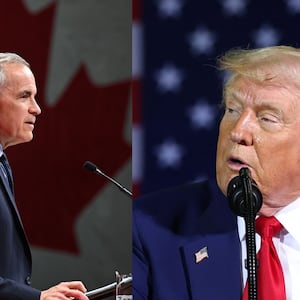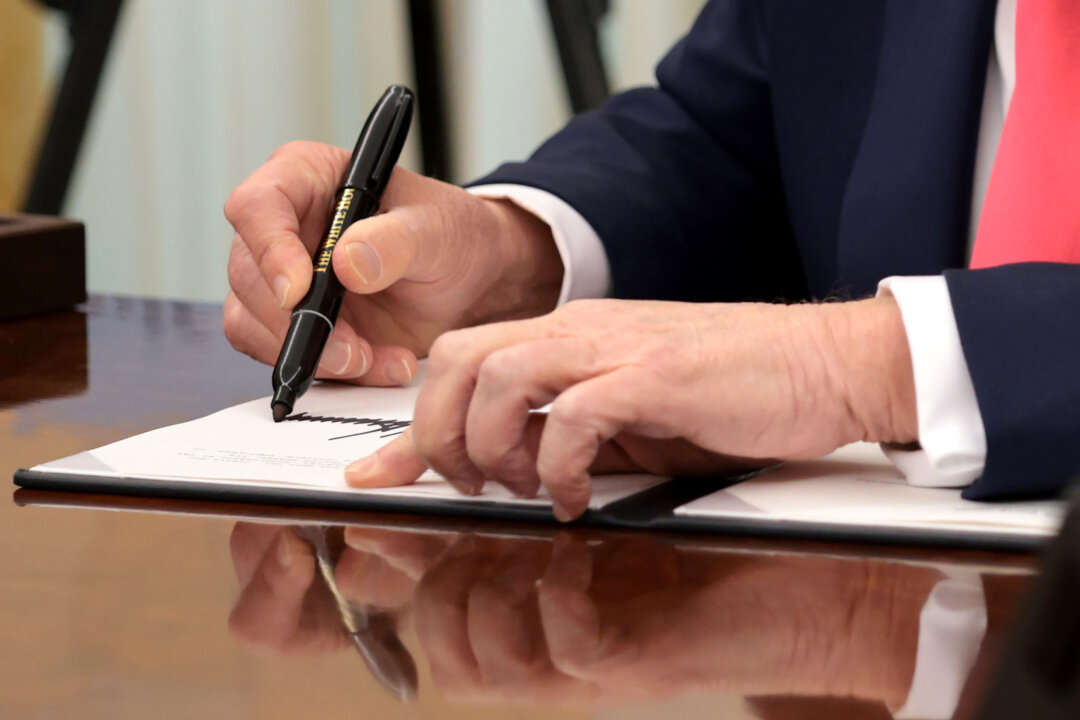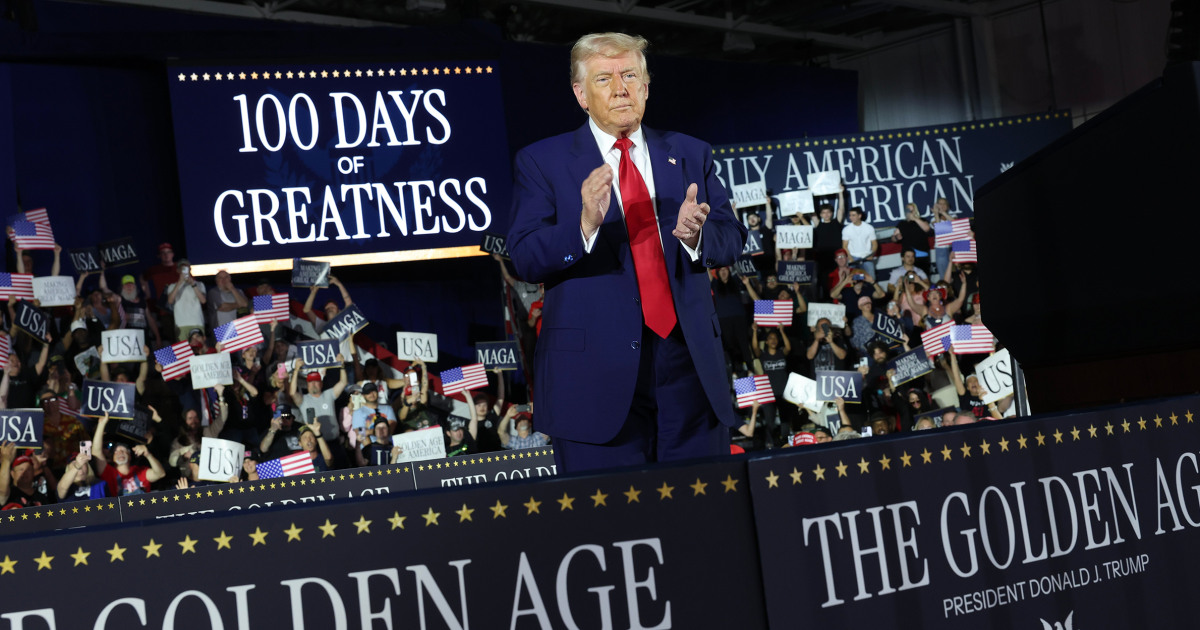The two most significant moments of this campaign came in quick succession. Almost two weeks ago the first arrived, when Donald Trump announced his “reciprocal” tariffs. The American president, already the single most-discussed person in the world and the dominant influence on this election, made himself still more ubiquitous.
Last week, the second occurred, when Trump hit pause on those tariffs. It’s possible that Trump does something equally newsworthy soon – or that Chinese President Xi Jinping does. But if the two protagonists of global politics restrain themselves until after May 3, then that pause may mark the moment at which Trump’s impact on this campaign began to fade.

That can only be a good thing for Peter Dutton. In mid-March, I that he had just had his worst two weeks as leader. He had continued to invite Trump comparisons; come out against public servants working from home and underestimated the importance of symbolism as a leader.
At least, I wrote, Dutton now had the chance to reset. Instead, in the weeks that followed, every one of those factors became worse for him. Two bad weeks became almost two bad months.
But Dutton has always had the ability to right himself tactically and, in the past week, that is what we saw. The work-from-home reversal was ugly but essential. There has been discipline in his campaign framework, with a followed by a series of factory visits.
And on Sunday we had a campaign launch that contained what it had to: big, splashy attempts to shift campaign topics and momentum. That would not have worked if Trump had still been chewing up the headlines. Now, other themes can reassert themselves.
On Sunday, both leaders officially launched their campaigns with announcements on tax relief and housing. This has long been talked about as a “cost-of-living election” (of which housing is a strand). The issue ranks far above all else with voters, which means both sides have to talk about it.
But this leaves a crucial question: is it really possible to win a cost-of-living auction? Or – as long as voters are persuaded both Dutton and Albanese want to throw money at them – does it all end in a draw? The fact the campaign has been dominated first by Trump and then by the cost of living is unfortunate. Dealing with Trump has to be left to the future, as the situation changes. Inflation, on the other hand, is yesterday’s problem, substantively if not politically.
But the fact these two themes loom so large means we have mostly ignored what the campaign has to tell us about the present. In some respects this campaign has, believe it or not, been quite revealing. One largely unremarked moment came on the first day of the campaign.
Prime Minister Anthony Albanese, asked about living standards, spoke passionately not just about tax cuts and subsidies but about industrial relations changes his government had delivered: protections for both casual workers and outsourced workers. It is often forgotten – except by business – that industrial relations has been one of the few areas in which Labor has been willing to pick a fight this term. What is still more interesting is that it has been one of the few significant topics of this campaign.
Dutton’s reversal on “work from home” tends not to be talked of as an “industrial relations” issue, though of course it is – something that Albanese . And this is a pointer to the shifting terrain of workers’ rights, as the usual focus on workplace conditions shifts to questions about the proper place of work within a life. This is accompanied by the political realisation that industrial relations is about white collar female workers as much as men in high-vis vests.
This campaign has been forgettable. But the political entrenchment of work from home – against the desires of many business leaders – may be a lasting consequence. Another fascinating development is the increased willingness of the Coalition to talk about targeting policies at those with less money – an argument you might traditionally associate with Labor.
When Albanese announced subsidies for batteries, Dutton this may mean those on lower incomes subsidised those rich enough to afford batteries in the first place. This followed his earlier criticism of Labor’s energy rebates for not being means-tested. When Labor announced its budget tax cuts, it boasted they went to everyone; Dutton’s tax relief, announced on Sunday, will be “temporary and targeted”.
Albanese’s new housing policy involves removing a means test; Dutton included a new one. The past week proved the Dutton campaign has some sense of what it should be doing. But the difficulty Dutton faces is not really tactical.
It is around the instincts and habits of the leader and his MPs. In a better week, Dutton still had to deal with about his defence spokesperson’s views on women in combat; his campaign spokesperson’s apparent change to public service policy; and his government efficiency spokesperson’s desire to “Make Australia Great Again”. Then there was his choice to at his launch about the “indoctrination” of students.
None were major events. Each, though, points back to the problem that has dogged Dutton these seven weeks: the seeming belief that Trumpy vibes can fill the gap where serious policy is supposed to be. If Trump briefly quietens, then Dutton may benefit – especially if he and his team can restrain those instincts and show the discipline this past week sometimes hinted at.
If not, then the major winners could be independents and minor parties. With Trump taking a back seat, voters may remember what has seemed their dominant attitude these past few years: of not loving either leader much. The main parties’ attempts to buy votes at their campaign launches yesterday may succeed – though it’s also possible the cynicism underlying that approach simply reminds voters why they were dismayed in the first place.
.
Politics

Trump can help fix Dutton’s slump, but only if he keeps schtum

Peter Dutton’s had a poor campaign so far. But a less conspicuous Trump, as improbable as that may be, may help the Liberal leader change the election conversation.















